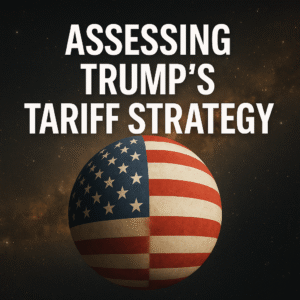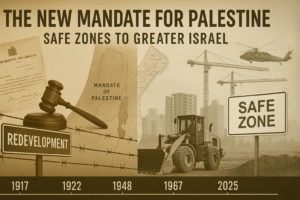Geopolitical Briefing: Somalia — Week of 24–31 Aug 2025
- Federal recognition of the “North-East State” (SSC-Khaatumo): Interior Ministry formally declared the state-formation complete and the entity admitted as a Federal Member State after July–Aug milestones (constitution, 83-seat parliament, speaker, president/VP elections). 31 Aug. (Wakaaladda Wararka Qaranka Soomaaliyeed, Hiiraan Online)
- AUSSOM transition: Egyptian troop deployment preps: A 16-member Egyptian military delegation arrived to scope facilities ahead of an Egyptian contingent joining the AU Support & Stabilisation Mission. 31 Aug. (Wakaaladda Wararka Qaranka Soomaaliyeed)
- Defense cooperation broadens: Cabinet approved three defence MoUs with Jordan, Qatar, and Pakistan at the weekly meeting. 28–29 Aug. (X (formerly Twitter), Warsom)
- Somalia–Djibouti MoU on political consultations: Foreign ministers signed a new mechanism for regular consultations in Mogadishu. 30 Aug. (Wakaaladda Wararka Qaranka Soomaaliyeed, Hiiraan Online)
- China track deepens: PM Hamza attended the China–Arab States Expo in Yinchuan, met Ningxia party secretary, and toured the Ningdong energy/industrial base; a Somalia–China business forum pitched investment. 25–29 Aug. (Wakaaladda Wararka Qaranka Soomaaliyeed, Shabelle Media)
- Border & travel controls modernised: Government launched an e-Visa/eTAS platform, mandatory for foreign arrivals from 1 Sep. 28–29 Aug. (Hiiraan Online, The EastAfrican)
- Urban security push in Mogadishu: Banadir central division police ran a visible operation around Liido beach/Abdiaziz district to improve movement and safety. 28 Aug. (Wakaaladda Wararka Qaranka Soomaaliyeed)
- Governance pressure: Auditor-General alleged top courts blocked audits, leaving >$1.0m in receipts unaccounted. 27 Aug. (Hiiraan Online)
- Humanitarian headwinds: Save the Children warned Somalia is among four African states projected to run out of RUTF for severely malnourished children within ~3 months without urgent funding. 28 Aug. (Reuters)
Full analysis
Federal recognition of the North-East State (SSC-Khaatumo) is the week’s strategic inflection. By bringing Sool, Sanaag and Cayn into the federal compact through an inclusive delegate process concluded in late July–August, Mogadishu strengthens the legal-political map under the federal constitution. It narrows room for external actors to instrumentalise local grievances and creates a clearer partner for federal security and service delivery in the north-east. Implementation risks remain—budget-sharing, security mandates and inter-state coordination will now be tested—but the formal admission itself is a sovereignty gain. (Wakaaladda Wararka Qaranka Soomaaliyeed, Hiiraan Online)
Security architecture is being localised while diversifying external enablers. The AUSSOM pipeline adds Egypt to the roster alongside Türkiye (ongoing officer training/graduations) and Gulf partners, distributing dependence and hedging against single-patron risk. The cabinet’s Jordan–Qatar–Pakistan MoUs point to training, kit flows and doctrine support for SNA/police, while police operations in Mogadishu signal a pop-security focus that complements rural offensives. Net effect: incremental capacity for indigenous force-led stabilisation, provided logistics and sustainment follow. (Wakaaladda Wararka Qaranka Soomaaliyeed, Hiiraan Online, X (formerly Twitter))
On the diplomatic flank, the Somalia–Djibouti MoU institutionalises political coordination with a frontline neighbour that hosts key logistics nodes for the Horn. That timing matters amid Red Sea volatility and Ethiopia’s maritime ambitions; regularised consultations improve Somalia’s hand in IGAD and AU fora and help align stances on cross-border security and migration. (Wakaaladda Wararka Qaranka Soomaaliyeed)
Economically and geo-commercially, the week shows a two-track push:
(1) China corridor—PM Hamza’s Ningxia program (Expo, leadership bilats, Ningdong tour) was tailored to energy, industrial inputs and investment prospecting. If even small pilot projects stick (power, agro-processing, building materials), they could de-risk supply chains for reconstruction while keeping Somalia non-exclusive between Gulf and Asian capital. (2) Borders & ports—the e-Visa/eTAS launch hardens border management (API/PNR alignment) and formalises travel flows that still rely heavily on informal brokers; leadership change at Mogadishu Port aims at revenue integrity and service upgrades to compete with regional ports. Both moves speak to control over strategic gateways—air and sea. Execution will decide whether they translate into fiscal resilience. (Wakaaladda Wararka Qaranka Soomaaliyeed, Hiiraan Online, The EastAfrican)
Balancing external rivalries remained careful but active. Hosting UAE and Sudan visitors in the same week triggered speculation that Mogadishu publicly batted down, underscoring a deliberate effort to avoid being pulled into the Abu Dhabi–Khartoum proxy contest while still extracting bilateral gains. Parallel defence ties with Türkiye, Qatar, Jordan, Pakistan, and an Egyptian AUSSOM role illustrate a diversified—rather than aligned—security diplomacy that raises Somalia’s bargaining space. (Wakaaladda Wararka Qaranka Soomaaliyeed, Hiiraan Online)
Governance and social resilience are the principal constraints. The Auditor-General’s clash with the judiciary over blocked audits exposes fragility in checks and balances just as donor confidence and debt-relief conditionalities hinge on transparency. Simultaneously, the RUTF warning flags a near-term humanitarian cliff that could undermine recruitment, schooling and security in newly recovered districts. Without quick fiscal and aid backfills, these pressures could dilute the gains from state-building and security reforms. (Hiiraan Online, Reuters)
Bottom line: This week advanced state consolidation (North-East State recognition), security diversification (AUSSOM-Egypt + new defence MoUs), and gateway control (e-Visa, port leadership), while Mogadishu kept an even keel amid Gulf rivalries. The durability of these gains now depends on governance follow-through and cushioning the looming nutrition shortfall.


